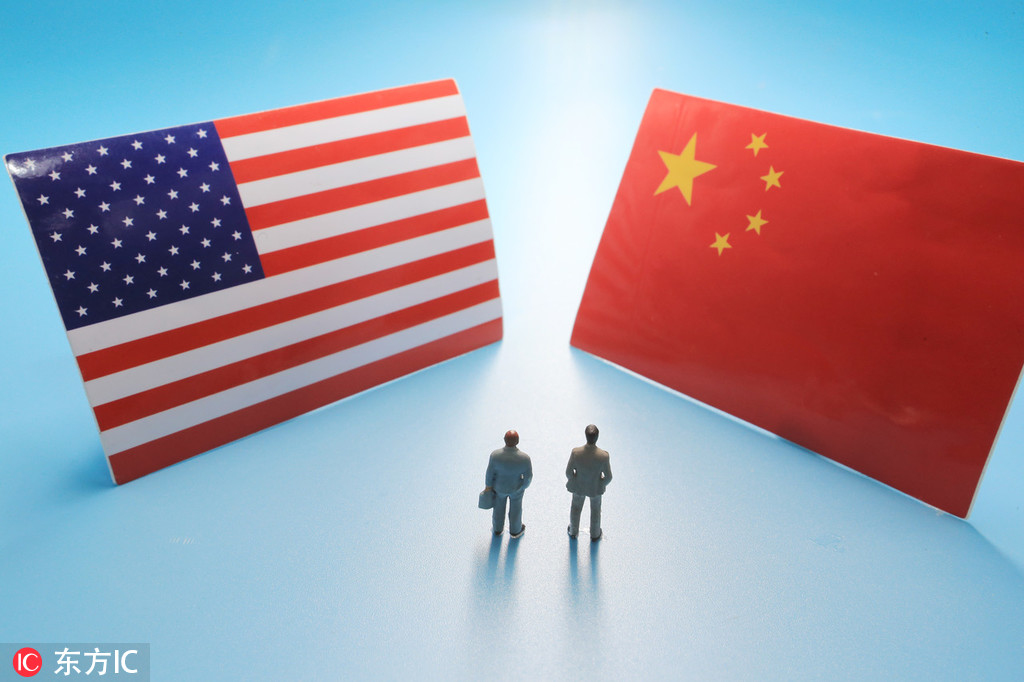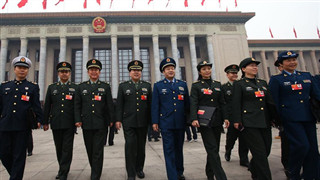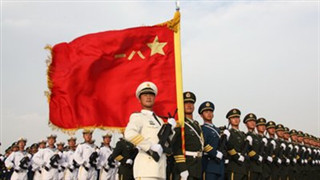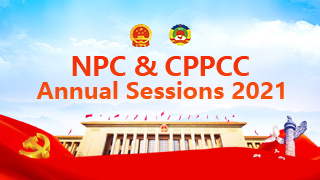
A few things have happened in the United States this week which suggest that rather than exercising prudence and developing a more sophisticated strategy toward China, one featuring both engagement and competition, the Joe Biden administration will double down on the containment policies instigated by its predecessor.
On Monday, a day that will have warmed the cockles of hawkish hearts in Washington, the Office of the US Trade Representative promised to be tough on the allegedly unfair trade practices of China in its 2021 Trade Agenda and 2020 Annual Report; the Pentagon gave the China Task Force four months to come up with a concrete road map for dealing with China; the US Indo-Pacific Command delivered a report to Congress in which it called for roughly $27 billion in additional spending between 2022 and 2027 to "boost deterrence against China", and two US Congressmen called for diplomatic recognition of the island of Taiwan.
Two days later, the Interim National Security Strategic Guidance provided additional proof that despite the conspicuous contrast in the characters of the current US leader and his immediate predecessor, their perceptions of China are very much alike. Nor do their approaches diverge much, except in Biden's emphasis on multilateralism, an aporetic "coalition of democracies" to confront China.
The cold shoulders the secretary of state Mike Pompeo encountered when trying to form such a clique should have driven home the message that countries want the US to act like a rational adult, not a petulant child. While the perceived competition will inevitably translate into real world wrangling in various fields, that should not inevitably equate to confrontation and conflict from which there will be no way out.
There is really no excuse for the two sides not to manage their competition and engage in meaningful cooperation in areas such as climate change, global health security, arms control and nuclear nonproliferation.
But those in both countries who cherished the hope that a new administration would inject reason and coolheadedness into Washington's China policies now have to accept that those hopes are fading.
The stumbling block, despite Biden's claim the interim guidance conveyed a vision of how the US will engage with the world, is Washington's paucity of vision of how to deal with a changing world. It seems that imagining a true coalition of countries in a community with a shared future is simply beyond it.
Until Washington tears down the walls of misperceptions it has built about China, it will remain in thrall to the past and effectively be a warden in a prison incarcerating possibilities.
For China, that will mean damage control.
Although he touched upon dozens of topics at his news conference on Sunday, few would doubt that State Councilor and Foreign Minister Wang Yi was using the opportunity to signal to the United States that it should act to follow up on the agreement reached between leaders of the two countries in their phone call last month. They should unblock communication channels to avoid misperceptions and miscalculations.
As two countries with different social systems, it is inevitable that there are differences and contradictions between both sides. The key is to effectively control them through frank communication.
Speaking on the sidelines of the ongoing session of the National People's Congress, Wang said that China is willing to discuss and deepen cooperation with the 6 with an open attitude, to jointly say "farewell to the old and welcome the new".
It is to be hoped that, as he urged, the US will lift all kinds of unreasonable restrictions on Sino-US cooperation as soon as possible and not fabricate any more artificial obstacles, so that the two countries can deepen their cooperation on the pressing issues confronting them, such as fighting the pandemic, economic recovery and climate change.
By reiterating China's principled position that it is willing to work with the US in the spirit of no conflict, no confrontation, mutual respect and win-win cooperation, and urging the US to build up goodwill with China by first cooperating on areas of common concern, Wang has in effect responded to US Secretary of State Antony Blinken's first major speech at the State Department on Wednesday, in which the top US diplomat said "China is the only country with the economic, diplomatic, military, and technological power to seriously challenge the stable and open international system — all the rules, values, and relationships that make the world work the way we want it to."
It is evident what China wants is to reengage with the US and bring the relationship back on track, yet the reluctance of the Joe Biden administration to deviate from the course laid out by the previous administration remains an obstacle.
His predecessor made it crystal clear near the end of his term that what the US dislikes is not China but a country that is not willing to do its bidding.
Blinken has now made it clear that what the Biden administration wants is not "a stable and open international system" to which China is a major contributor, but one in which China is under the thumb of the US. China remains open to dialogue and cooperation, but it will not be at the US' beck and call.
It seems that the US is again making the wrong choice of path at a historical crossroad, and is intent on heading down a path that will inflict further damage not only on China, but on itself and others.











